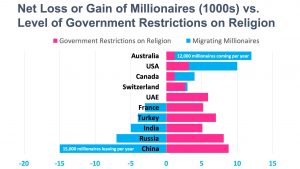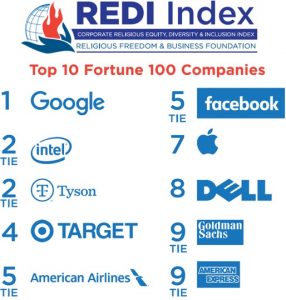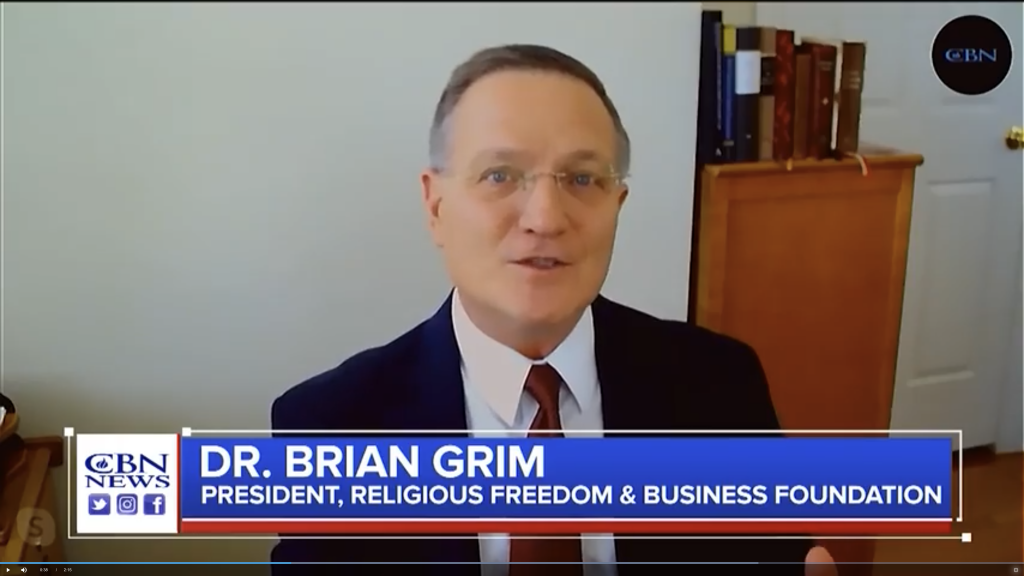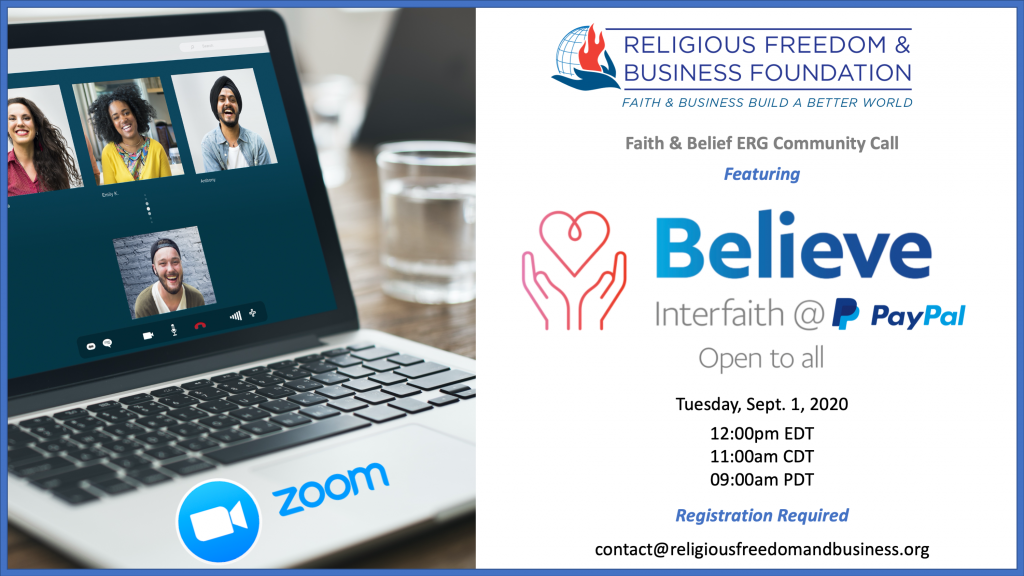The United Nations estimates more than one million members of Muslim minority groups have been incarcerated in what China terms de-radicalization and retraining centers.
Earlier this summer China announced penalties to be imposed on the US envoy for Religious Freedom along with other US legislators and the Congressional-Executive Commission on China (CECC), a bi-partisan panel that advises Congress and the administration on human rights matters in China. The move comes in response to legislation that prompted the US Treasury to sanction officials in China for mass internment, forced labor, coerced sterilizations, and forced renunciations of faith in China’s western region of Xinjiang among Uyghurs, Kazakhs, and other ethnic minorities.
The US Treasury action follows legislation (H.R. 6210) ensuring that goods made with forced labor in the Xinjiang Uyghur Autonomous Region of the People’s Republic of China do not enter the United States market, and for other purposes.
Religious repression not only is a precursor of greater conflict, as shown in my coauthored book The Price of Freedom Denied (Cambridge Univ. Press), but also a damper on economic growth and sustainability.
For example, in our research — which has been translated into Chinese by Fudan University — we find that religion spurred on by religious freedom annually contributes nearly $1.2 trillion of socio-economic value to the US economy. That is equivalent to being the world’s 15th largest national economy, putting it ahead of about 180 other countries. It’s more than the annual revenues of the world’s top 10 tech companies, including Apple, Amazon and Google. And it’s also more than 50% larger than that of the annual global revenues of America’s 6 largest oil and gas companies. So, you might say, that represents a lot of spiritually inspired fuel being pumped into the US economy. All of this is made possible because of religious freedom in the US.
By contrast, the Communist Party of China (CPC), the country’s ruling political party, not only prohibits its members from religious affiliation and practice, it has extreme controls put in place nationwide to control all religious expression. The aim is to produce a harmonious society recognizing the CPC ultimate source of the country’s vision, direction and success. Religion is under tight control because, by its very nature, calls for heavenly loyalties that are outside of the CPC’s control.
Of course, the CPC does not view heaven beyond its purview. They seek to determine who the next reincarnation of the Panchen Lama and Dalai Lama will be. They determine who can be in the apostolic line of succession, which the Roman Catholic Church views as the uninterrupted transmission of spiritual authority from the Apostles through successive popes and bishops. They not only remove crosses from churches and minarets from mosques, but raze to the ground churches, mosques and temples deemed to be unauthorized. And, for security’s sake, they have incarcerated up to one million people in the far western Xinjiang Uygur Autonomous Region, primarily for exhibiting too much devotion to Islam.
Scientific research also shows that the ultimate outcome of high government restrictions on religious freedom is violence. Currently, religion-related violence in China is mostly in the form of the government controls and repression just mentioned. But in the volatile climate China finds itself in today, the data suggest that repression feeds resentment that will ultimately end in destabilizing violence.
All of that is bad for business. Data show that high restrictions on freedom of religion or belief damage or even destroy the World Economic Forum’s pillars of global competitiveness. For example, innovative strength is more than twice as high in countries where governments respect freedom of religion or belief.
One indicator of innovative strength is whether a country’s top entrepreneurs and successful business people stay in a country or leave it. Recent research shows which countries are losing or gaining millionaires through migration, with Australia gaining the most and China losing the most. The chart below shows how this compares with the level of government restrictions on religion and belief in a country.

The data show that China, the country with the highest government restrictions on religion – as measured by the Pew Research Center – is also losing the highest number of millionaires seeking freer, more secure opportunities elsewhere. And Australia, a country with low government restrictions on religion, is benefiting the most from this migration of talent and resources.
China’s ongoing crackdown on religion adds another weight dragging down what has been remarkable economic growth spurred on by the religious openness following the Cultural Revolution of the 1960s-1970s. In China, during the Cultural Revolution of the 1960s and 70s, religion was outlawed and many people were persecuted for their beliefs. In the 1980s – 2000s there was an openness that resulted in the spread of religion, such that China is now home to the world’s second-largest religious population after India, according to demographic estimates.
Religious freedom matters to Chinese people.
It is important to get past the notion that China is an unreligious country just because the CPC is atheist by constitution. In fact, Pew Research data show that China in 2020 has about 2.5 times more religiously affiliated people (669.3 million) than does the United States (272.7 million). China is home to the world’s largest Buddhist population, largest folk religionist population, largest Taoist population, 7th largest Christian population, and 17th largest Muslim population (ranking between Yemen and Saudi Arabia in size) making China one of the world’s most religiously diverse nations—something which is also associated with economic growth.
In particular, the growth of Christianity and the growth of China’s economy may be related, according to a study in the China Economic Review. In the study, Qunyong Wang from the Institute of Statistics and Econometrics, Nankai University, Tianjin, and Xinyu Lin from Renmin University of China, Beijing, find that Christianity boosts China’s economic growth. Specifically, they find that robust growth occurs in areas of China where Christian congregations and institutions are prevalent. Moreover, many of China’s top universities and hospitals used to be missionary institutions.
If China were to deregulate religion, it would win the undying loyalty of hundreds of millions of Chinese citizens, increase trust in the CPC, reduce tensions with the US, and set free a new wave of innovation and prosperity. The bottom line is that religious freedom is both good for business and a safeguard of peace and stability — China’s and the world’s.
Finally, returning to the problems Disney is facing, religious literacy including knowledge of how religion impacts workplaces and marketplaces is sorely need. For an idea of what is involved in such literacy, see the short presentation below.
 Join Brian Grim on Zoom this Wednesday at 2:00 PM Eastern Time as we celebrate RFBF’s partner project, Launching Leaders Worldwide. We helped pioneer this interfaith self-reliance course in Manchester UK, which has since gone global!
Join Brian Grim on Zoom this Wednesday at 2:00 PM Eastern Time as we celebrate RFBF’s partner project, Launching Leaders Worldwide. We helped pioneer this interfaith self-reliance course in Manchester UK, which has since gone global!

 Disney’s Mulan Misstep: Literacy on religious freedom needed
Disney’s Mulan Misstep: Literacy on religious freedom needed







 Several publications and reports over the past week indicate that there is a growing call from within evangelical circles to embrace principled pluralism and the need for greater religious literacy (“RQ”) in American life and racial justice. As summarized below, Andrew D. Graham makes a powerful argument for principled pluralism and more understanding of different faiths.
Several publications and reports over the past week indicate that there is a growing call from within evangelical circles to embrace principled pluralism and the need for greater religious literacy (“RQ”) in American life and racial justice. As summarized below, Andrew D. Graham makes a powerful argument for principled pluralism and more understanding of different faiths.


